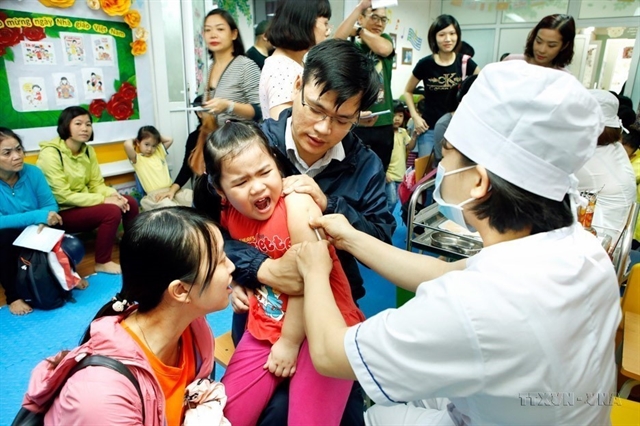 Society
Society


|
| A child receives her vaccine shot against measles in Hà Nội. — VNA/VNS Photo Đào Thị Minh Tú |
HCM CITY — Measles cases have been rising since the beginning of 2024, particularly in HCM City, raising concerns about the insufficient vaccination coverage rates in provinces.
HCM City's Department of Health attributed the surge to the COVID-19 pandemic, which disrupted the supply of vaccines in the Expanded Programme on Immunisation in 2022.
The disruption derailed vaccination rates, with many children not receiving their vaccinations on time, or at all.
By the beginning of 2023, when the vaccine supply began to increase, HCM City and other provinces had implemented catch-up vaccination plans for children. However, vaccine coverage rates have still not reached the required levels to give herd immunity.
In response to concerns about the shortage of measles vaccines in the past three months, Hoàng Minh Đức, Director of the General Department of Preventive Medicine, said vaccine production takes time.
He said new vaccine doses were produced in the first two months of 2024 and distributed to localities for vaccination from June until October.
"Việt Nam has received 17/21 million doses of measles vaccine, which has been transferred to the Centres for Disease Control in the provinces," said Đức.
He also said that the Ministry of Health, from April to June, delivered enough measles vaccines for the Expanded Programme on Immunisation, ensuring 7.5 per cent of children are vaccinated monthly.
He added that they had advised the Ministry to review all non-vaccinated children and that provinces with children who had not received enough doses would be required to organise catch-up vaccination programmes.
The World Health Organization (WHO) has warned that Việt Nam is at risk of a measles outbreak in 2024, due to the low vaccination rates in 2023, if it does not implement full vaccination programme. —VNS




